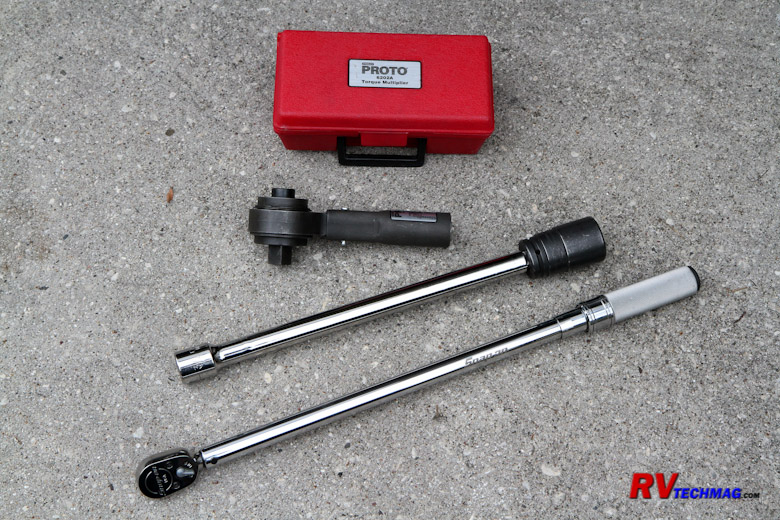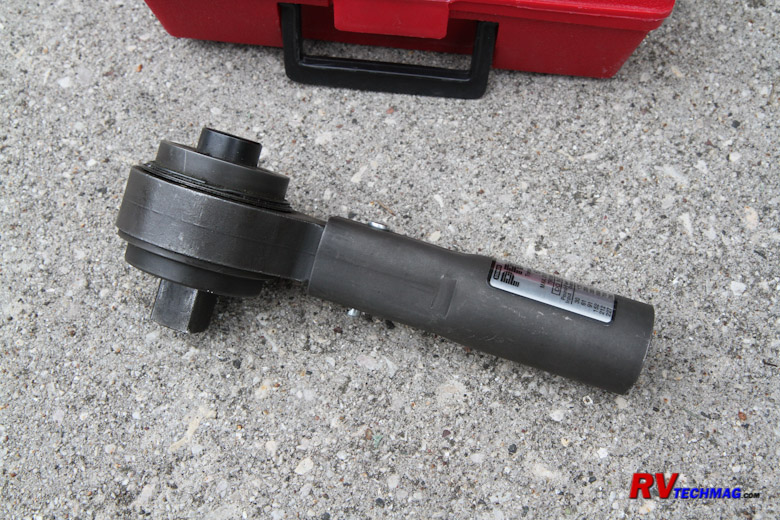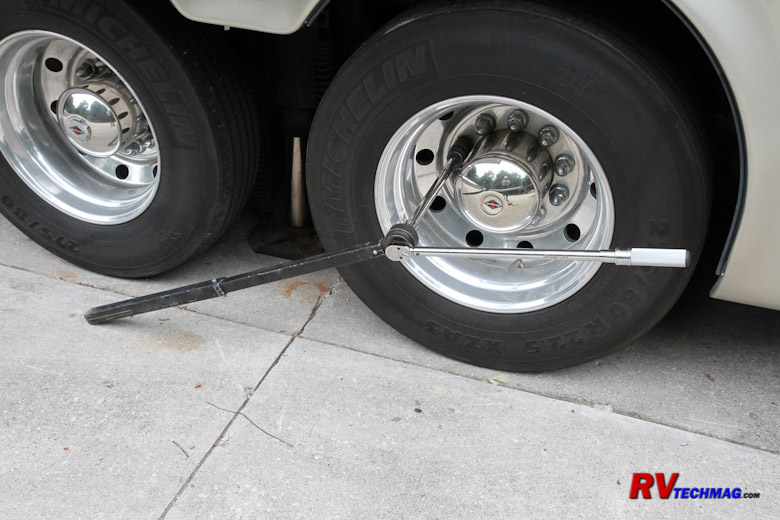Torque Multipliers
Cranking Up Some Extra Torque
Article Date: August, 2012
Article and Photography by Mark Quasius

Torque Multipliers allow you to output high torque values by using a planetary reduction gear drive with smaller 1/2" drive torque wrench
If you look in any tool box you are bound to find screwdrivers and a few wrenches. But, one tool that you're
not that likely to find is a torque multiplier. They aren't the most inexpensive item and they do have limited use. However, for an RV
owner they can be invaluable.
The biggest RV application for a torque multiplier is for lug nuts. Class A motorhomes have some fairly hefty
axles under them and require high torque values to properly mount the wheels. If the lug nuts work loose due to inadequate torque the
holes in the wheel rims will elongate and destroy the wheel rim, especially with aluminum rims. Overtightening lug nuts will cause the
threads to stretch which will also allow them to loosen up over time. Extreme torque can even snap these studs off, necessitating a trip
to your RV chassis service center to install new studs.
The majority of these motorhomes require lug nut torque in the neighborhood of 475 ft-lbs. To put that in perspective,
the average person can apply 100 ft-lbs of torque with a one foot bar. Therefore in order to apply 475 ft-lbs of torque the average guy will
need a wrench with a 5' handle. You'll need even more leverage to remove a lug nut that's been on a while because it requires even greater
torque to break it free.
Torque multipliers multiply torque by using gear reduction. A set of planetary gears multiplies torque, typically on a
ratio of 4:1 or 6:1, by exchanging travel for torque. Think of it as a granny gear for your ratchet. Most torque multipliers will have a 1/2"
drive input with a 3/4" drive output. This will let you mount that large 3/4" drive extension and 33mm lug nut socket on the output shaft while
allowing you to use your 1/2" drive torque wrench or breaker bar on the input shaft. The torque multiplier will want to turn in the opposite
direction so a torque bar is attached to the unit to absorb that energy and prevent that from happening. Impact wrenches should never be used
on torque multipliers or else you will damage the planetary gear reduction and destroy the unit. Instead, use a breaker bar with your torque
multiplier to remove lug nuts.
Wheel rim torque should be checked regularly as part of any maintenance schedule. It's important that these threads are
clean and dry whenever torque settings are checked. Dirty, rusty studs will bind and give a false reading. Oil or grease on those same studs
will allow you to apply excessive torque, damaging them. To properly torque lug nuts, be sure that the studs are clean and do not have any rust
buildup on them. If you want to lubricate your studs to prevent them from rusting be sure to dry them off afterwards to remove any excessive
oil that will throw off your torque readings.
|

Torque Multipliers come in a variety of sizes and gear reduction ratios. RV applications are best served by a unit with a 1/2" drive
input and 3/4" drive output.
|

Torque multipliers require a torque bar to prevent the unit from turning in the opposite direction when in use.
|
Return to Home Page
If you enjoyed this article be sure to recommend RVtechMag.com to your friends, like us on Facebook or Twitter
or subscribe to our RSS feed.



|







